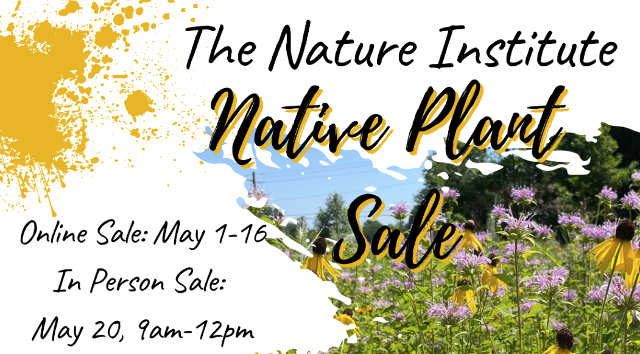
GODFREY - Doug Tallamy, author and expert on the interactions of plants and insects, has written several books describing the importance of native plants in our ecosystem. One of his projects, homegrown national parks, encourages homeowners to plant native plants in their yard in order to bring wildlife back to our more urban areas. This year, The Nature Institute is helping to make that dream a reality by providing many species of flowering plants at the Native Plant Sale. All of these plants will help make your yard a habitat hotspot for pollinators, birds, and other animals.
Get The Latest News!
Don't miss our top stories and need-to-know news everyday in your inbox.
The Nature Institute (TNI), located in Godfrey, IL, has provided the community with native plants at its annual plant sale since the year 2000. On Saturday, May 20, 2023 from 9 am to 12 pm, TNI, Lewis and Clark’s Restoration Ecology Program, and River City Natives willprovide many species of native plants to the community at its annual native plant sale. This year the sale will be in a new location, near Talahi Lodge, where our trails start.
The Nature Institute will also provide plants for online purchase to anyone that cannot attend the in-person market. The online sale will open on May 1, 2023 and will stay open for 2 weeks, or until all plants have been purchased. Using the online plant sale link, which can be found on TNI’s website, you can make your plant selections and choose a pick up date and time. Invoices will be sent and must be paid before plants can be picked up by the purchaser.
You will be able to take your plants home and put them directly into the ground. New plantings will require some water, especially after several dry days in a row, but once they are established, they will be happy in the hot dry summer weather of the Midwest. Native plants require less water than non-native ornamental plants. Because native plants are adapted to local soil types, the addition of compost and fertilizers is not necessary. Further, native plants have co-evolved with insect herbivores and can grow despite light to moderate insect damage without the use of insecticides. More benefits to wildlife and less maintenance makes native plants perfect for any yard. Once you have established a plot of native plants, they will sustain themselves through reseeding without much effort on your part.
The showy flowers of native plants provide nectar and pollen to butterflies, bees, and hummingbirds throughout the growing season. In spring, songbirds feed their babies the insects collected from the native plants in your yard. After native plants have bloomed, birds and other wildlife rely on the seeds of native plants as a source of food in the fall and winter months.
That same afternoon at 1pm, outreach director, Ramona Pollard, will give a presentation on how to become a community scientist. Community scientists are individuals that help collect important ecosystem data which can then be used by researchers across the world to better understand phenology, biodiversity, and pollinator interactions. This program is free and will include a short hike to learn how to collect data as a community scientist.
For more information about TNI’s Native Plant Sale and the Community Science Series, visit www.TheNatureInstitute.org.
More like this:
Related Video:
